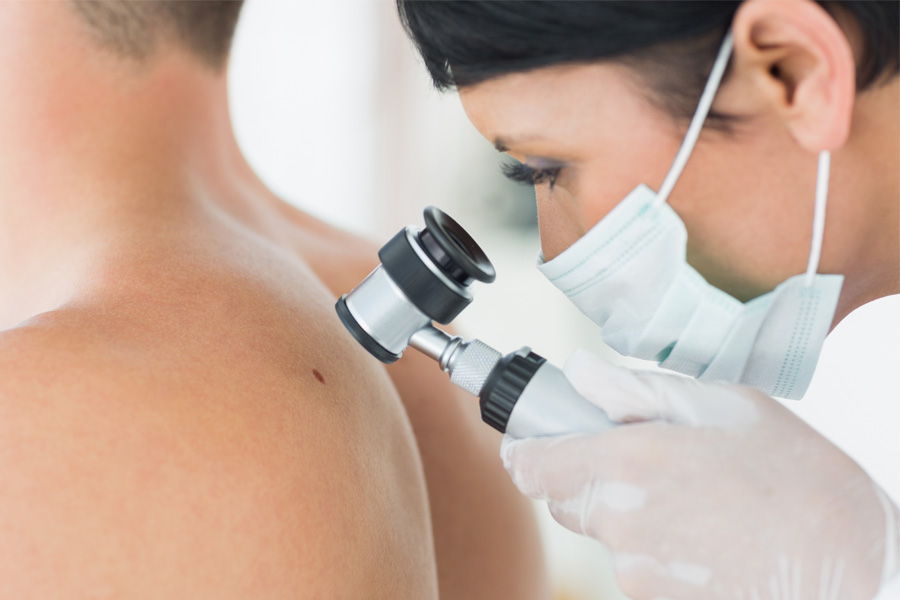
Skin cancer can be deadly. It can also be preventable.
Nearly 1 in 5 Americans will develop skin cancer by the age of 70, and more than two people die of skin cancer every hour in the U.S.
It doesn’t have to be this way.
If detected early enough, the 5-year survival rate for melanoma is up to 99%.
What does that mean?
It means one of your top priorities for skincare should be skin cancer screenings. So let’s take a look at what these look like, how you can get them. They can potentially save your life.
Skin exams, especially skin cancer screenings, are very brief, and in fact are often covered by most insurances as preventative care. On top of this, it also usually only takes about 10 minutes to complete.
10 minutes to potentially catch something lifesaving? It’s worth it.
The purpose of a skin exam is to identify any suspicious growths, moles, or other changes to your skin that may seem normal and acceptable to you, but could harbor potentially dangerous effects down the line.
During a skin exam, your dermatologist will usually begin by asking you questions about your skin, how it feels, any family history, or if you’ve noticed that anything is off or unexpected.
From here, they will examine any areas you’ve voiced as concerning, along with generally looking over areas that are commonly problematic. After a full review, they’ll develop a follow-up plan specific to your needs.
Skin exams could save your life.
We wish this was simply being dramatic, but the facts don’t lie.
Melanoma, the most deadly of skin cancers, has a 99% survival rate after 5 years. However, this is only with proper and early detection.
This detection can only be made possible if a trained dermatologist has their eyes on your skin regularly—yearly for most patients.
So, if you’ve had 5 or more sunburns in your life, regular exams are vital to ensuring your skin is healthy and cancer-free. If your family also has any history of skin cancer, annual exams should be the minimum in order to prevent disastrous effects later on.
Not only are skin cancer screenings important to the health of your skin (and ultimately, your survival), preventing skin cancer is really the first line of defense.
Think of skin exams as the goalie, and prevention as the defense team.
Here are the best tips to prevent skin cancer: